The Burundian Kavugangoma is from Ruvubu coffee. The offering we have is Lot 11171, which is a naturally processed coffee.
Burundi
Burundi has the ideal conditions for growing great coffee. First of all, it enjoys an equatorial climate, which is hot and wet. Secondly, most of the country lies on highlands, which provide cool temperatures and rich volcanic soil. Thirdly, a significant amount of the coffee grows in shade, which is what the coffee tree loves best.
Despite being a landlocked country, Burundi has abundant water resources, thanks to Lake Tanganyika, which covers 10% of the country. However, it took a long time for Burundi coffee to gain recognition on the global stage.
Burundi has 18 Provinces, which are divided into 129 Communes and approximately 3000 hills. The Kavugangoma is surrounded by 18 hills that supply coffee.
Ruvubu Coffee
The Ruvubu coffees come from a coffee producers near the Ruvubu River and National Park in Burundi. The farmers use the river water to wash and process the coffee. The Ruvubu River is a major water source in central East Africa, where it collects waters from the farthest part of the Nile basin. It stretches for about 300 km. It originates in the north of Burundi, near the town of Kayanza, and then curves southward through Burundi. Near Gitega, it merges with the Ruvyironza River.
Kavugangoma
The name “Kavugangoma” means the sound of the drums. It comes from the location of the washing station on the hill of Kavugangoma. In Burundian tradition, the drum makers used trees called Umuvugangoma to make all the drums. When Burundi was a Kingdom, this tree was sacred to the region and people planted it with reverence.
The washing station took four years to build and it is now in its eighth production. Moreover, the washing station has brought many positive changes to the population, such as:
- Shortening the distance of the route that coffee growers take to bring the cherries from their fields to the PWS. The coffee growers used to walk a great distance to get to the washing stations.
- Decreasing the waiting time for coffee growers to hand over their cherries to the staff at the washing station.
- Improving the organisation and management of the coffee growers by implementing regulations and procedures that respect them.
- Creating jobs for the local population, which has greatly reduced poverty and the migration of active people to the cities.
However, the quality of the cherries may vary depending on the treatment system and the following criteria:
- Altitude of the original hill
- Soil composition.
- Treatment of the coffee plants from the nursery, nurturing the plantations, until picking the cherries.
- Delays in transporting cherries from picking at the PWS.
- Waiting time before pulping cherries.
- Water used for washing during pulping.
An interesting fact is that the cherries from the 18 hills around the Kavugangoma Pulping/ Washing Station have almost the same quality and characteristics. The working system ensures that the cherries are fresh and arrive quickly at the washing station.
Burundian Kavugangoma Lot 11171
The coffee we are offering is from lot 11171. It represents a single lot take from the hills of Jarama, Bukwanzi, Mukunguza, Bugonza, Kibwirwa, Butobwe and Mwakiro. Soil on these hills is volcanic, hence it is rich in nutrients such as nitrogen, which coffee plants need, and tends to hold water well.
Our brews:
| Brew Method | Ratio | Brew Method | Ratio | |
|---|---|---|---|---|
| Espresso | 1:2.2(28 sec) | AeroPress | 17g:200g | |
| Plunger | 46g:800g | Pour over/filter | 17.5g:300g |
Transparency Information
| Producer / Organisation | Kavugangoma run by Ruvubu coffee |
|---|---|
| FOB price | $6.7/kg |
| Cupping score | 86.7 (Ruvubu), however our score was 83 |
| Lot size bought | 1 x 60 kg bag |
| Relationship | Our first coffee we have offered from Ruvubu |


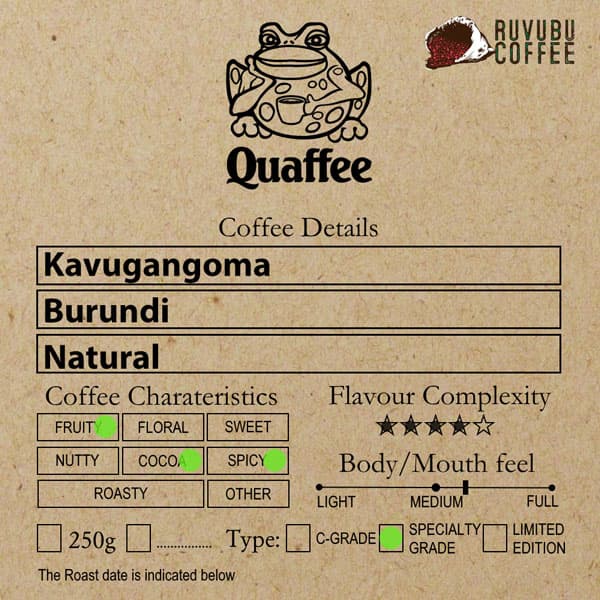
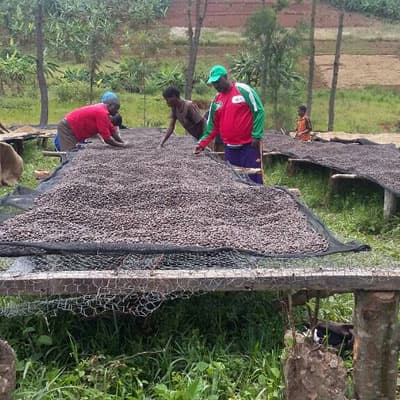
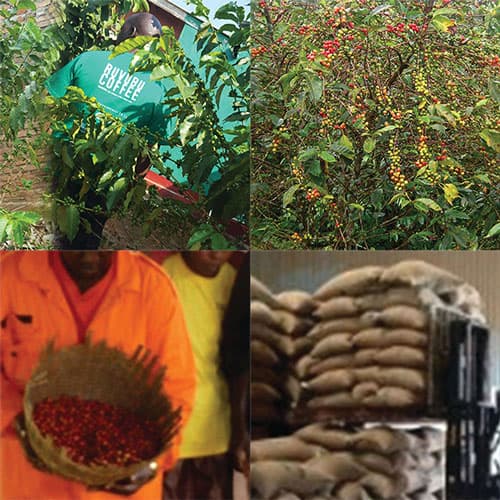
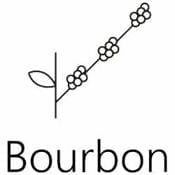
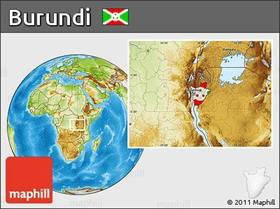
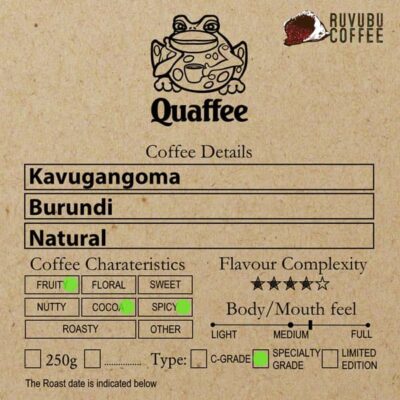
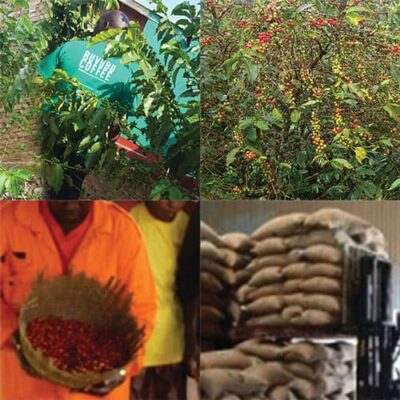
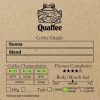
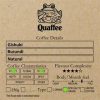
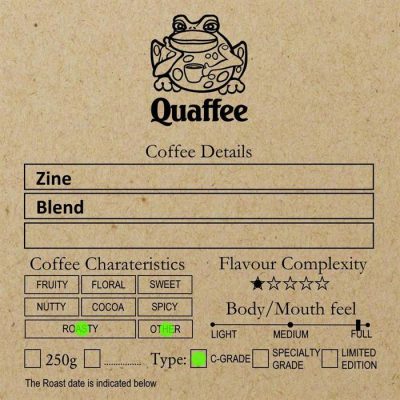
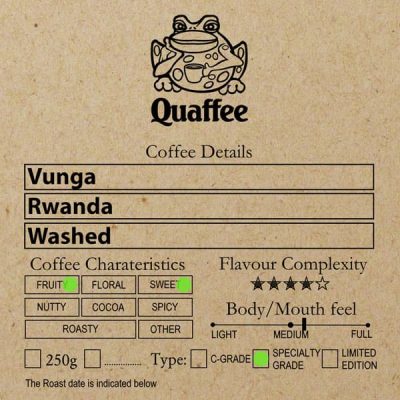
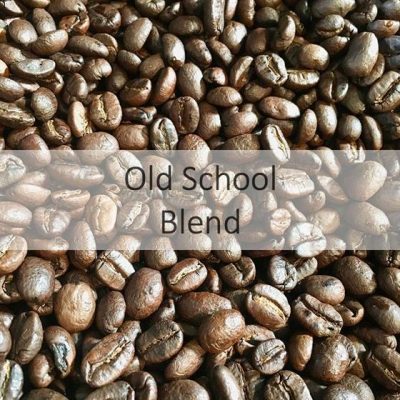
Reviews
There are no reviews yet.